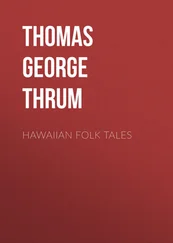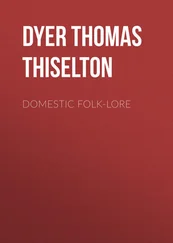Thomas Dyer - Folk-lore of Shakespeare
Здесь есть возможность читать онлайн «Thomas Dyer - Folk-lore of Shakespeare» — ознакомительный отрывок электронной книги совершенно бесплатно, а после прочтения отрывка купить полную версию. В некоторых случаях можно слушать аудио, скачать через торрент в формате fb2 и присутствует краткое содержание. Жанр: foreign_antique, foreign_prose, на английском языке. Описание произведения, (предисловие) а так же отзывы посетителей доступны на портале библиотеки ЛибКат.
- Название:Folk-lore of Shakespeare
- Автор:
- Жанр:
- Год:неизвестен
- ISBN:нет данных
- Рейтинг книги:4 / 5. Голосов: 1
-
Избранное:Добавить в избранное
- Отзывы:
-
Ваша оценка:
- 80
- 1
- 2
- 3
- 4
- 5
Folk-lore of Shakespeare: краткое содержание, описание и аннотация
Предлагаем к чтению аннотацию, описание, краткое содержание или предисловие (зависит от того, что написал сам автор книги «Folk-lore of Shakespeare»). Если вы не нашли необходимую информацию о книге — напишите в комментариях, мы постараемся отыскать её.
Folk-lore of Shakespeare — читать онлайн ознакомительный отрывок
Ниже представлен текст книги, разбитый по страницам. Система сохранения места последней прочитанной страницы, позволяет с удобством читать онлайн бесплатно книгу «Folk-lore of Shakespeare», без необходимости каждый раз заново искать на чём Вы остановились. Поставьте закладку, и сможете в любой момент перейти на страницу, на которой закончили чтение.
Интервал:
Закладка:
Arcite, in the “Two Noble Kinsmen” (v. 1), when addressing the altar of Mars, says:
“Whose approach
Comets forewarn.” 142 142 See Proctor’s “Myths of Astronomy;” Chambers’s “Domestic Annals of Scotland,” 1858, vol. ii. pp. 410-412; Douce’s “Illustrations of Shakespeare,” pp. 364, 365.
Dew. Among the many virtues ascribed to dew was its supposed power over the complexion, a source of superstition which still finds many believers, especially on May morning. All dew, however, does not appear to have possessed this quality, some being of a deadly or malignant quality. Thus Ariel, in “The Tempest” (i. 2), speaks of the “deep brook” in the harbor:
“where once
Thou call’dst me up at midnight to fetch dew
From the still vex’d Bermoothes.”
And Caliban (i. 2), when venting his rage on Prospero and Miranda, can find no stronger curse than the following:
“As wicked dew as e’er my mother brush’d,
With raven’s feather from unwholesome fen
Drop on you both!”
It has been suggested that in “Antony and Cleopatra” (iii. 12) Shakespeare may refer to an old notion whereby the sea was considered the source of dews as well as rain. Euphronius is represented as saying:
“Such as I am, I come from Antony:
I was of late as petty to his ends
As is the morn-dew on the myrtle leaf
To his grand sea.”
According to an erroneous notion formerly current, it was supposed that the air, and not the earth, drizzled dew – a notion referred to in “Romeo and Juliet” (iii. 5):
“When the sun sets, the air doth drizzle dew.”
And in “King John” (ii. 1):
“Before the dew of evening fall.”
Then there is the celebrated honey-dew, a substance which has furnished the poet with a touching simile, which he has put into the mouth of “Titus Andronicus” (iii. 1):
“When I did name her brothers, then fresh tears
Stood on her cheeks; as doth the honey-dew
Upon a gather’d lily almost wither’d.”
According to Pliny, “honey-dew” is the saliva of the stars, or a liquid produced by the purgation of the air. It is, however, a secretion deposited by a small insect, which is distinguished by the generic name of aphis. 143 143 See Patterson’s “Insects Mentioned by Shakespeare,” 1841, p. 145.
Rainbow. Secondary rainbows, the watery appearance in the sky accompanying the rainbow, are in many places termed “water-galls” – a term we find in the “Rape of Lucrece” (1586-89):
“And round about her tear-distained eye
Blue circles stream’d, like rainbows in the sky:
These water-galls in her dim element
Foretell new storms to those already spent.”
Horace Walpole several times makes use of the word: “False good news are always produced by true good, like the water-gall by the rainbow;” and again, “Thank heaven it is complete, and did not remain imperfect, like a water-gall.” 144 144 “Letters,” vol. i. p. 310; vol. vi. pp. 1, 187. – Ed. Cunningham.
In “The Dialect of Craven” we find “Water-gall, a secondary or broken rainbow. Germ. Wasser-galle.”
Thunder. According to an erroneous fancy the destruction occasioned by lightning was effected by some solid body known as the thunder-stone or thunder-bolt. Thus, in the beautiful dirge in “Cymbeline” (iv. 2):
“ Guid. Fear no more the lightning flash,
Arv. Or the all-dreaded thunder-stone.”
Othello asks (v. 2):
“Are there no stones in heaven
But what serve for the thunder?”
And in “Julius Cæsar” (i. 3), Cassius says:
“And, thus unbraced, Casca, as you see,
Have bared my bosom to the thunder-stone.”
The thunder-stone is the imaginary product of the thunder, which the ancients called Brontia , mentioned by Pliny (“Nat. Hist.” xxxvii. 10) as a species of gem, and as that which, falling with the lightning, does the mischief. It is the fossil commonly called the Belemnite, or finger-stone, and now known to be a shell.
A superstitious notion prevailed among the ancients that those who were stricken with lightning were honored by Jupiter, and therefore to be accounted holy. It is probably to this idea that Shakespeare alludes in “Antony and Cleopatra” (ii. 5):
“Some innocents ’scape not the thunderbolt.” 145 145 Douce’s “Illustrations of Shakespeare,” 1839, p. 369.
The bodies of such were supposed not to putrefy; and, after having been exhibited for a certain time to the people, were not buried in the usual manner, but interred on the spot where the lightning fell, and a monument erected over them. Some, however, held a contrary opinion. Thus Persius (sat. ii. l. 27) says:
“Triste jaces lucis evitandumque bidental.”
The ground, too, that had been smitten by a thunder-bolt was accounted sacred, and afterwards enclosed; nor did any one even presume to walk on it. Such spots were, therefore, consecrated to the gods, and could not in future become the property of any one.
Among the many other items of folk-lore associated with thunder is a curious one referred to in “Pericles” (iv. 3): “Thunder shall not so awake the bed of eels.” The notion formerly being that thunder had the effect of rousing eels from their mud, and so rendered them more easy to be taken in stormy weather. Marston alludes to this superstition in his satires (“Scourge of Villainie,” sat. vii.):
“They are nought but eeles, that never will appeare
Till that tempestuous winds or thunder teare
Their slimy beds.”
The silence that often precedes a thunder-storm is thus graphically described in “Hamlet” (ii. 2):
“‘we often see, against some storm,
A silence in the heavens, the rack stand still,
The bold winds speechless, and the orb below
As hush as death, anon the dreadful thunder
Doth rend the region.’”
Earthquakes , around which so many curious myths and superstitions have clustered, 146 146 See Tylor’s “Primitive Culture,” vol. i. pp. 364-367.
are scarcely noticed by Shakespeare. They are mentioned among the ominous signs of that terrible night on which Duncan is so treacherously slain (“Macbeth,” ii. 3):
“the obscure bird
Clamour’d the livelong night: some say, the earth
Was feverous and did shake.”
And in “1 Henry IV.” (iii. 1) Hotspur assigns as a reason for the earthquakes the following theory:
“Diseased nature oftentimes breaks forth
In strange eruptions; oft the teeming earth
Is with a kind of colic pinch’d and vex’d
By the imprisoning of unruly wind
Within her womb; which, for enlargement striving,
Shakes the old beldam earth, and topples down
Steeples, and moss-grown towers.”
Equinox. The storms that prevail in spring at the vernal equinox are aptly alluded to in “Macbeth” (i. 2):
“As whence the sun ’gins his reflection
Shipwrecking storms and direful thunders break,
So from that spring, whence comfort seem’d to come,
Discomfort swells.”
– the meaning being: the beginning of the reflection of the sun is the epoch of his passing from the severe to the milder season, opening, however, with storms.
Читать дальшеИнтервал:
Закладка:
Похожие книги на «Folk-lore of Shakespeare»
Представляем Вашему вниманию похожие книги на «Folk-lore of Shakespeare» списком для выбора. Мы отобрали схожую по названию и смыслу литературу в надежде предоставить читателям больше вариантов отыскать новые, интересные, ещё непрочитанные произведения.
Обсуждение, отзывы о книге «Folk-lore of Shakespeare» и просто собственные мнения читателей. Оставьте ваши комментарии, напишите, что Вы думаете о произведении, его смысле или главных героях. Укажите что конкретно понравилось, а что нет, и почему Вы так считаете.












